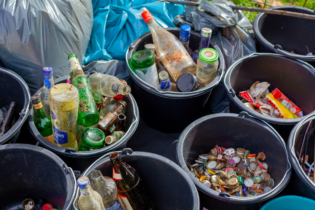Experts predict that in 30 years, there will be more plastic in our oceans than fish. And one study estimates that 90% of seabirds have consumed some form of plastic waste.
All that pollution on beaches and in the ocean is harmful to both marine life and humans. So, Adidas is trying to stop some of that plastic before it reaches the ocean. Adidas makes over 400 million pairs of shoes every year. However, manufacturing that many shoes requires a lot of resources. Constantly creating new materials isn’t great for the environment, Adidas is thus turning to a different source. In 2015, Adidas partnered with the environmental organization Parley for the Oceans. Their goal is to turn marine pollution into sportswear. And they’ve made progress. In 2019, Adidas expects to make 11 million pairs of shoes with recycled ocean plastic. Adidas says the partnership has prevented 2,810 tons of plastic from reaching the oceans. But how are these shoes made?It all starts at the beach. Parley and its partners collect trash from coastal areas like the Maldives. The waste is then sorted, and the recovered plastic is sent to an Adidas processing plant. Adidas uses plastic bottles that contain polyethylene terephthalate, or PET.
And if it’s something Adidas can’t use, like caps and rings? Those get sent to normal recycling facilities. The processing plant crushes, washes, and dehydrates the waste, leaving nothing but small plastic flakes. The flakes are heated, dried, and cooled, then cut into small resin pellets. Normally, polyester is made from petroleum. But Adidas melts these pellets to create a filament, which is spun into what they call Ocean Plastic, a form of polyester yarn. Adidas uses Ocean Plastic to form the upper parts of shoes and clothing like jerseys. Each item in the Parley collection is made from at least 75% intercepted marine trash. And they still meet the same performance and comfort standards of Adidas’ other shoes. Recycled polyester uses less water and fewer chemicals and helps prevent plastic pollution. Adidas’ goal is to replace all virgin polyester with recycled polyester by 2024. Currently, more than 40% of Adidas’ apparel uses recycled polyester. You may have even seen Adidas’ recycled sportswear without even noticing it!





